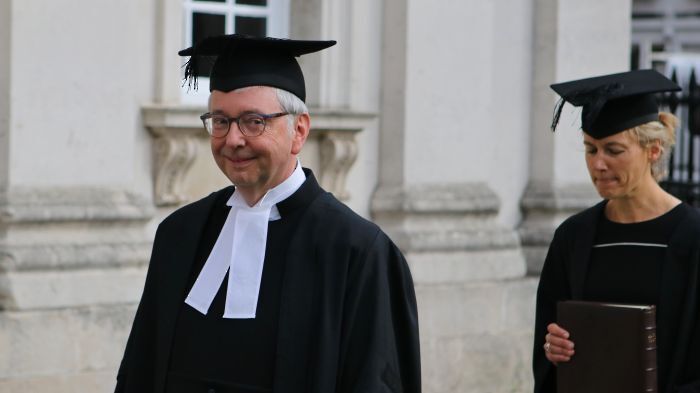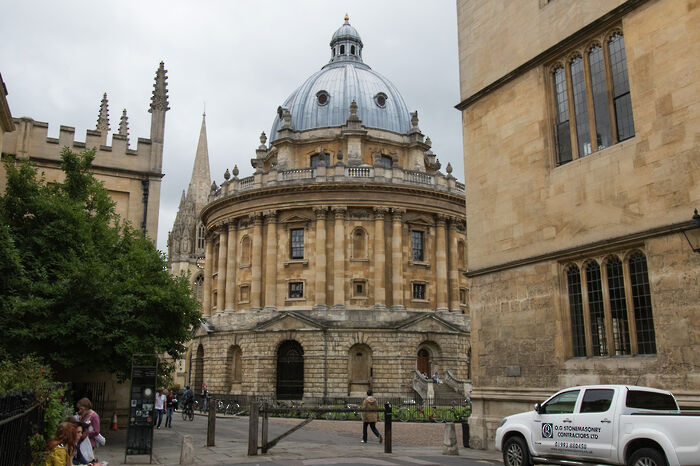‘How are Ivy League universities more representative than Oxford and Cambridge?’
David Lammy talks to Varsity about the recent coverage of his work on social mobility and Oxbridge

David Lammy MP has returned to the issue of Oxford and Cambridge admissions for the third time in his political career.
It comes at a time when Lammy has just finished leading a review into disproportionality in the criminal justice system, following the government’s response to the Grenfell Tower incident. Despite now being a backbench MP, Lammy has been able to continue his work spotlighting issues which he cares deeply about.
Lammy emphasises that “when I make contributions in our public life [...] what I say is driven by the evidence, by the data”. Yet this issue is perhaps also a blurring of the personal and the political. Lammy, who is MP for Tottenham, grew up on the Broadwater Farm Estate there. He won a choral scholarship to the King’s School in Peterborough followed by degrees from SOAS and Harvard. You can’t help but notice the difference between Lammy and the establishment figures of Labour who emerged at the same time as him. In an interview with The Guardian in 2015, Lammy says “I wasn’t dropping leaflets from the age of four... I experienced the need for the Labour Party, but I wasn’t born into the Labour Party.”
The key reforms that Lammy proposes are centralised admissions, foundation year programmes, Oxbridge to directly contact talented students from disadvantaged backgrounds and to give weight to an applicant’s class and local authority when making offers.
A criticism of Lammy’s proposed reforms is that they are a plaster over a larger wound of inequality in our country. They cannot fix the devastation of Thatcherism in the North, or that children on free school meals were four times more likely to be excluded from school, or the government’s cuts to Maintenance Grants for the poorest students.
“It is definitely the case that issues are broader than issues just for Oxbridge”
David Lammy
These criticisms do not sway Lammy: “I’ve talked about underachievement in our schools for 20 years…. I’ve talked about inequality, I’m one of the members of parliament who is most known for talking about inequality.” It is in this context that Lammy is presenting his findings: “We as politicians are allowed to talk about one issue but obviously these are all occurring at the same time.”
Lammy argues it is untrue to suggest that because of the divisions in our society Oxbridge cannot be reformed. Lammy points to the United States “which has got bigger inequalities than our country, which has not got a welfare state so their poverty is so much deeper than our own, which has a racial history of slavery – how is it that the Ivy League universities are more representative than Oxford and Cambridge? How is it that Harvard have [sic] said that next year 50% of their intake will be non-white?”
The second branch of criticism Lammy faced came from a different end of the political spectrum. Writers such as Toby Young in The Spectator declared that it wasn’t the fault of Oxford or Cambridge, the onus was on the individuals to apply. Lammy sounds exasperated that the media are repeating these criticisms: “I’ve heard these arguments, I heard them 7 years ago, I heard them when I was higher education minister, but they’re not convincing or powerful arguments.”
For Lammy, incentivising people to apply is helped by his proposed reforms: “Actively write to young people in Sunderland, in Rochdale, in Salford, in Tottenham who get straight As and say, ‘we want you to apply.’” Admissions offices should be chasing up these students: “I don’t hear those conversations happening. I know that they’re not happening and I’m very concerned they’re not happening.”
Lammy has more time for the criticism that he shouldn’t simply focus on Oxbridge. Figures from The Sutton Trust have revealed that universities including Bath, Bristol and Exeter accept a lower percentage of students who received Free School Meals than Oxford and Cambridge. Lammy accepts this criticism: “It is definitely the case that issues are broader than issues just for Oxbridge.” However, for Lammy it is important to recognise that “we are talking about the two educational institutions in this country that are largely considered to be across the globe second to none.” The problems of access are much broader than Oxbridge, but given their prominence, it is only right that they receive an increased scrutiny.
“This is an issue that I will certainly not be leaving alone”
David Lammy
A thought that appears to have been worrying Lammy is that that he has been pigeonholed; that his efforts to spotlight access have made him a one-trick-pony. “It’s important to emphasise that the work I did last weekend was not solely about race, yet again there’s an attempt to put me in a box and say I can only talk about race. Many commentators said I called the institutions racist but I did not. I talked about race, about class, about geography and I said that I feel there is a systematic bias.”
There is a kind of useful anger in Lammy’s voice at these moments – the outrage of a man who is keen to get things done and cannot understand why others won’t. Lammy has to be tough to keep going: “You know I’m a member of parliament who is slated every day of the week with racist abuse on Twitter and I have to have broad shoulders.” Yet he repeatedly reminds me that he’s just “one member of parliament among 650”.
The emphasis on his own limitations as “just one backbench MP” feels like a hangover from his time as a junior Minister in government. Consistently tipped to be a future Labour prime minister, one disastrous performance at the dispatch box in 2004 and a failed bid to become the mayoral candidate for London seemed to dispel that optimism. Lammy appears to be trying to avoid the fate of so many advocates for change, particularly those from minority groups; promise change you cannot deliver and expect to have your mistakes magnified and mauled apart by the press.
However, the support from Lammy’s colleagues seems to have left him less isolated: “The response in parliament has been tremendous; it’s been a cross-party response… it feels bigger than last time round.” Yet when I ask him whether he’s optimistic for change, Lammy backtracks to the work that needs to be done still. There is a sense that he has been here before, close to a change that hasn’t come.
The amount of work it will take to reform Oxbridge is a price worth paying for Lammy: “There will be a broader spectrum of people sitting round our cabinet table, a broader spectrum of people being CEOs of our companies, people who are able to lead our inquiries into issues such as Grenfell.” For Lammy, the concern rests with the shape of our institutions – who ultimately has a seat at the table: “That is why this is an issue that I will certainly not be leaving alone.”
 Comment / Cambridge students are too opinionated 21 April 2025
Comment / Cambridge students are too opinionated 21 April 2025 Interviews / Meet the Chaplain who’s working to make Cambridge a university of sanctuary for refugees20 April 2025
Interviews / Meet the Chaplain who’s working to make Cambridge a university of sanctuary for refugees20 April 2025 News / News in brief: campaigning and drinking20 April 2025
News / News in brief: campaigning and drinking20 April 2025 Comment / Cambridge’s tourism risks commodifying students18 April 2025
Comment / Cambridge’s tourism risks commodifying students18 April 2025 Comment / Cambridge’s gossip culture is a double-edged sword7 April 2025
Comment / Cambridge’s gossip culture is a double-edged sword7 April 2025







